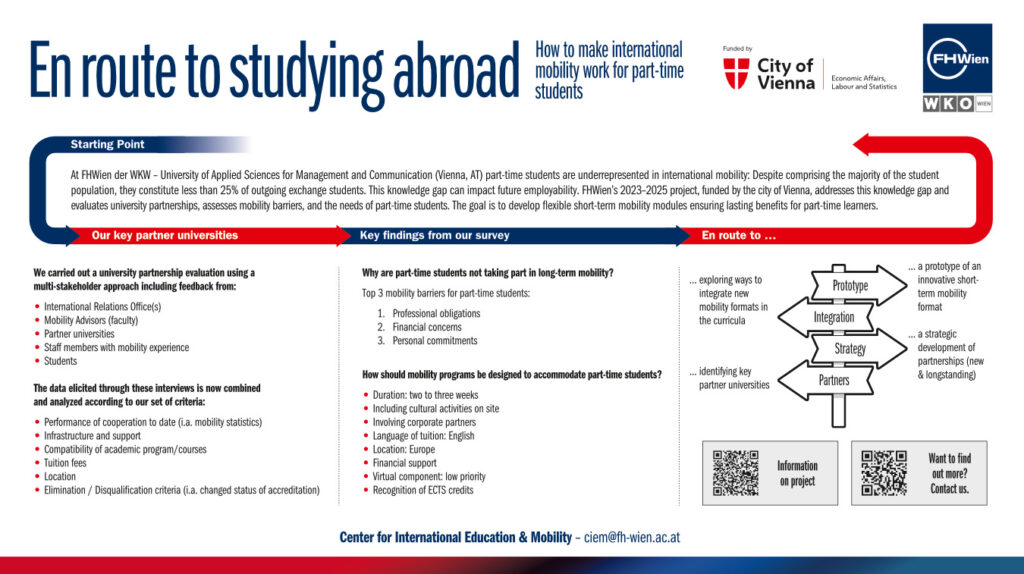The best way for students to acquire international competencies are study-relevant periods abroad. While part-time students are in the majority at FHWien der WKW, they participate only marginally in international mobility. The research project “EDUcation-INNOvation-COOPeration” explores the causes and looks for ways to change this. In addition, the project is dedicated to an evaluation of the international university partnerships of FHWien der WKW.
1. New mobility format for part-time students
The first step was to conduct a survey among students from the Bachelor’s program in Digital Business as well as the two Master’s programs in Communication Management and Marketing & Sales Management and lecturers to determine the demand and need for international short-term mobility and to identify obstacles to mobility. Based on this survey, we developed a prototype of the new mobility format that reflects the wishes and needs of the respondents.
In the next step, two degree programs launched a pilot project to test the prototype:
- In the Master’s program in Communication Management, an existing project was chosen to carry out the prototype. Here, students under the direction of Dr. Leyla Tavernaro-Haidarian formed international teams with students from the University of Georgia in Tbilisi to take part in the renowned AdVenture competition organized by the European Institute for Commercial Communications Education (edcom).
- A new collaboration was established in the Bachelor’s program in Digital Business. Under the direction of Stefan Nafra, MSc (WU), students developed a project in international teams with the University of Applied Sciences of the Grisons in Chur, CH.
We are currently evaluating the experiences of all participants in the two pilot projects. The next aim is to formulate recommendations and identify examples of good practice for the integration of new mobility formats in the curricula.
2. Rethinking Key Partnerships
We assessed our international university collaborations using a tailored evaluation framework and insights from students, staff and partner institutions. Key criteria included academic compatibility, infrastructure, support and cooperation performance.
The aim is to achieve high-quality collaborations, focus resources and strengthen sustainable partnerships for future collaboration.
